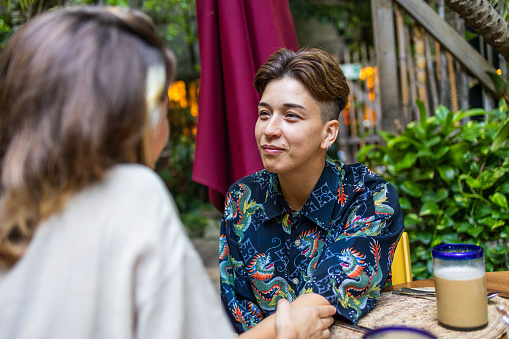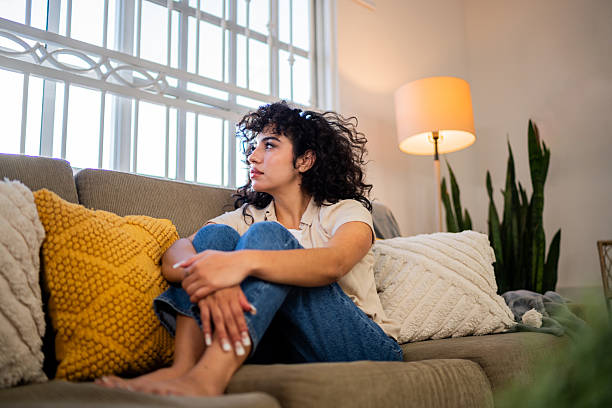The year has been full of ups and downs. It had many unexpected turns and turmoils. Our mental health was just at risk as our physical health. We were reminded that health is about physical and mental when we dealt with burnout and exhaustion. We felt the stress, anxiety, and even the depression of social distancing and isolation. Some of us experienced the loss of employment, housing, and worst of it, loved ones. We canceled our celebrations. We postponed our trip. We found ourselves trying to do normal things during abnormal times, such as working from home, homeschooling, and socializing through Zoom. We are about to add another memory to the pandemic as we celebrate the holidays through Zoom.
It is November. The month of being grateful and giving thanks. It is the time of the year, where we talk most about gratitude. Maybe this year it won’t look the same since we can’t have our usual family gatherings or Friendsgiving. But more than ever before, we need the benefits of gratitude.

It is a special time of the year. Our traditions remind us of the importance of being present, thankful, and grateful. While we talk about gratitude the whole month, it often does not make it to the rest of the year, yet along every morning or evening routine.
Gratitude comes easily in November, but not every day. It is time to change that!
How come we are most likely to talk about gratitude in November? How come not throughout the year? Ask yourself, what comes to mind when you think of gratitude? How does it make you feel?
By definition, gratitude means to give thanks and show appreciation.
But it is more than counting your blessings. It is more than bragging about how lucky you are. It is more than recognizing your good fortune. It is more than complimenting or praising oneself.
If you define gratitude as complimenting oneself, then it will feel like you are bragging, as if you are keeping a secret journal of how awesome you are. It could feel like you are tooting your own horn. This can be a significant deterrent, pushing you away from keeping a gratitude journal.
If you define practicing gratitude as naming all the good things in your life, it can be even more challenging to practice it when you feel down, anxious, or angry. When experiencing negative emotions, the last thing you may “feel” like doing is naming things you appreciate. Especially when it feels like nothing is going right, it can feel even more impossible or fake to name things that are going well in your life.
𝘗𝘳𝘢𝘤𝘵𝘪𝘤𝘪𝘯𝘨 𝘨𝘳𝘢𝘵𝘪𝘵𝘶𝘥𝘦 𝘤𝘢𝘯 𝘧𝘦𝘦𝘭 𝘧𝘢𝘬𝘦.

If you feel unhappy and empty inside, or feeling anxious and overwhelmed, pausing and thinking of things you are thankful for may not feel real. It may feel like you are faking it or just pretending. It may seem contradictory to the unpleasant emotions you are having.
𝘚𝘰 𝘺𝘰𝘶 𝘱𝘰𝘴𝘵𝘱𝘰𝘯𝘦 𝘪𝘵. You think, “I’ll get to that later.” Or even worse, you believe, gratitude journaling is for “other people,” you know, the one that has their life together, one that is happier than you.
The story doesn’t have to end there.
The problem is not that these negative emotions get in the way of practicing gratitude. It is the belief that one must be feeling “better” or “happier” before they can practice gratitude.
What we forget is that we can feel sad and grateful; we can feel anxious and thankful. The point is to make room for appreciation amid these negative emotions and not wait for these emotions to disappear. Practicing gratitude when feeling sad or anxious does not make the gratitude you feel any less. It also does not mean that you couldn’t possibly be feeling sad if you are feeling grateful.
𝐁𝐞𝐜𝐚𝐮𝐬𝐞 𝐭𝐰𝐨 𝐨𝐩𝐩𝐨𝐬𝐢𝐭𝐞 𝐞𝐦𝐨𝐭𝐢𝐨𝐧𝐬 (𝐭𝐡𝐨𝐮𝐠𝐡𝐭𝐬 𝐚𝐧𝐝 𝐞𝐱𝐩𝐞𝐫𝐢𝐞𝐧𝐜𝐞𝐬) 𝐜𝐚𝐧 𝐜𝐨-𝐞𝐱𝐢𝐬𝐭.
You can feel anxious and grateful at the same time. You can feel insecure and thankful at the same time. Practicing gratitude doesn’t mean you don’t mean it when you say you are anxious or stressed out. It doesn’t have to replace or repress any other emotion.
Gratitude is good for your mental health. It is good for YOU!
What if practicing gratitude was a form of celebration! What if gratitude is all about embracing and owning what is yours. It can be traits or patterns that are unique to you or shared by millions of people.
Every person who has ever kept a gratitude journal has identified their health and family as things they are grateful for. That’s normal and inevitable. But gratitude is about diving deeper into what gives your life meaning, purpose, and direction. It is identifying aspects of your life that adds value and significance. It can be any steps you have taken today to keep the status quo or the actions you have taken that have brought you one step forward. You can feel grateful for the relationships and connections in your life. You can feel thankful for moments of laughter or quiet, the moments of strength and ambition, the moments of optimism, and hope. Gratitude is recognizing the values that guide you and ground you. It is more than just about being thankful. It is about celebrating life.
Gratitude will also boost your mood and even affect your immune system. It can act as a protective factor. It can help you find balance because it reminds you of what is essential in your life. It can help you with impulse control and reactivity. It can guide you in being more responsive rather than reactive.

For example, in my gratitude journal, I mention a recent memory I had with my daughter, a moment we had a hard laugh or a warm hug. When I acknowledge those moments’ significance, I am more likely to remember them throughout my day. When later on the day, I find myself impatient and quickly activated in response to my daughter’s typical 4-year-old non-compliance, my gratitude list can be the force that slows me down. This doesn’t mean I try to be a perfect mom, but at least I can walk away and stop making a difficult moment worse for both myself and my daughter.
When you identify your health as something you are grateful for in your journal and recognize the importance of good and stable health, you set yourself up for the rest of the day. Now you are more likely to make choices and take actions to protect your good health and maintain it.
The practice of gratitude can set you up to live in a way that aligns with your values. The gratitude practice can help to ground you by reminding you what is essential for you. Ultimately it can bring more balance to your life.
There is also a connection between your self-confidence and your gratitude list. Feeling self-doubt, incompetent, and insecure is not unique to you. Many people share it. We feel anxious when we are in social situations. We feel scared to be rejected or let someone down. We feel as if we are not enough to be loved, be successful, and belong. Managing these human emotions takes time and effort. A gratitude practice can be a good companion during this journey. Showing thanks and appreciation to the parts of you can help change the way you see yourself. Maybe you can give thanks to your ambition, to your vision, to your creativity. Perhaps you can appreciate the way you don’t give up or the way you show up. Once you start to be thankful for parts of you trying your best, it can boost your self-confidence and trust. Gratitude eventually becomes the way we show ourselves compassion, empathy, and understanding. Gratitude can become the way we become our loudest cheerleader instead of our worst enemy. Gratitude can stop us from being our bully. It can be a shield from self-loathing, blame, and negative self-talk. It is a crucial tool in your toolbox against depression, anxiety, and addiction.
Gratitude is also the path to vulnerability, authenticity, and fulfillment.

When you show gratitude and appreciation to things in your life that bring you meaning and purpose, you start to feel more satisfied, content, and fulfilled. When you focus on the relationships and break them down to the specific moments and interactions in that relationship that you feel gratitude about, the bond and the connection of that relationship is strengthened. For example, in your gratitude journal, you can name moments like “we had a family dinner all four of us,” “my daughter and I had giggles this morning,” “my husband brought me a cup of coffee.” Showing gratitude for these moments brings your attention to the depth of these relationships.
We are prone to quickly forget about and dismiss the moments that may have filled up our cup during our busy and stressful days. More often, due to our brain’s negativity bias, we are wired to pay more attention to the negative moments than the positive ones. So you may remember and hold on to the tantrum your son had this morning more than the morning cuddles when he was having his cup of milk.
You can have a more authentic connection with yourself and others when you embrace all of you with ups and downs. Gratitude is not about dismissing the negatives, but it is a way to have a more balanced perspective. We can feel more complete and content if we see our relationships’ strengths and weaknesses with others. Gratitude journaling will help you feel more grounded, secure, confident, hopeful, optimistic, and safe. It will remind you that you have more strength, resilience, and talent than you realize. It will show you that there are connections in your life that will be by your side when things go wrong.
You can also interrupt anxiety with gratitude.
Anxiety looks at all that is missing, all that is going wrong, and the present is not how it was supposed to be. Anxiety fuels feelings of doubt, insecurity, and fear. The intensity of it can make you think so differently where you are looking at things in extremes. Things are very black or white.
Gratitude looks at all that is good, all that is complete. Gratitude helps you embrace the present without resistance or wishing it was different. Gratitude reminds you of your strength, resilience, and hope. It restores a sense of safety and calm. It guides you to have a more balanced perspective to clarify what is going on in your life.
When we look too far into the future, we start to worry and get anxious. When we keep looking back to the past, we begin to feel guilty and regretful. We over-analyze what happened or what could take place. We become more reactive and impatient when we are not in the present moment. Anxiety takes us away from the present moment, and Gratitude can bring us back to the present.
Remember, it is OK if you feel anxious and grateful at the same time. Remember, two opposite feelings can co-exist. However, when you feel anxious without feeling grateful, you can lose your sense of anchor, purpose, and peace. So 𝘮𝘢𝘬𝘦 𝘳𝘰𝘰𝘮 𝘧𝘰𝘳 𝘨𝘳𝘢𝘵𝘪𝘵𝘶𝘥𝘦.
How to start your gratitude practice:
You feel informed and motivated to start your gratitude practice. So what’s next?

While it is true that all you need is a pen and paper to start, I do recommend utilizing planners dedicated explicitly to the gratitude practice. The gratitude journals are helpful as each page is dedicated to a single day, which keeps you mindful of engaging in this new routine daily. Also, gratitude journals offer writing prompts to help you identify different aspects of your life to show appreciation.
One of my favorite things about the gratitude journal is the short and empowering inspirational quotes on the cover. I would like to share two of my favorite gratitude journals that I have used; One is from the author Rachel Hollis. You can find her gratitude journal through their website the Start Today journals and planners. I also love the Five Minute Journal because it takes you five minutes a day to fill it out. It is also unique in that it has few prompts for you in the morning and a few prompts in the evening. We focus on different things at different times of the day. Therefore, having writing prompts focusing on the beginning of the day and shifting our focus to things to focus on in the evening can bring the day to completion.
𝐘𝐨𝐮 𝐜𝐚𝐧’𝐭 𝐰𝐚𝐢𝐭 𝐮𝐧𝐭𝐢𝐥 𝐲𝐨𝐮 𝐟𝐞𝐞𝐥 𝐫𝐞𝐚𝐝𝐲!

There is no perfect time or place, or mood to start gratitude journaling—honestly, 𝐭𝐡𝐞 𝐭𝐢𝐦𝐞 𝐢𝐬 𝐍𝐎𝗪. You start today and write down 3-5 things you are grateful for. We often keep ourselves stuck because we wait until we feel certain ways to take a specific action. We forget this one important truth/fact: 𝐀𝐂𝐓 𝐭𝐡𝐞 𝐰𝐚𝐲 𝐲𝐨𝐮 𝐰𝐚𝐧𝐭 𝐭𝐨 𝐅𝐄𝐄𝐋.
One more thing before you go…
Gratitude is not an end-all solution to finding happiness or taming anxiety. It won’t solve all your problems or bring you some magical peace with sparkles. But believe me when I say that it is an irreplaceable tool in your toolbox. It will help to create a system that you can utilize for good and bad days. Never heard anyone say they regret practicing gratitude.
Don’t forget to start small! Maybe spend only a few minutes a day. Maybe only name one or two things you are grateful for. Keep it short and straightforward so that you can get started. No need to seek perfectionism when it comes to your gratitude practice. If you need inspiration, search Instagram, or Twitter. Many people share their gratitude list that can give you new ideas. It is not cheating; it is only learning from others.
When you make time to write down things you are grateful for, please don’t rush! Slow down, go somewhere private, and take a deep breath. Be in your body and be present as much as you can. You want to write things from your heart and soul.
Lastly, do it as often as you can! It is OK to start writing your gratitude journal on the weekends where you don’t feel rushed to start work or start the kids’ Zoom class. Maybe you may want to take the weekends off. Whatever your frequency will be, stick to it. See where your gratitude practice will take you.
Embracing You Therapy Group Practice
Here at Embracing You Therapy, we invite you to explore with us how life would be different if you had more control over your thoughts and emotions, and we invite you to consider that it is possible to accept things just as they are, embracing imperfections to create a gentler place for calm in your life.
Let’s learn what drives your unique perspective on anxiety and stress. Then, let’s find the tools-your unique tools-that help you respond to life in a healthy, calm way. Contact us today for your complimentary 15-minute phone consultation with one of our Client Care Coordinators.




